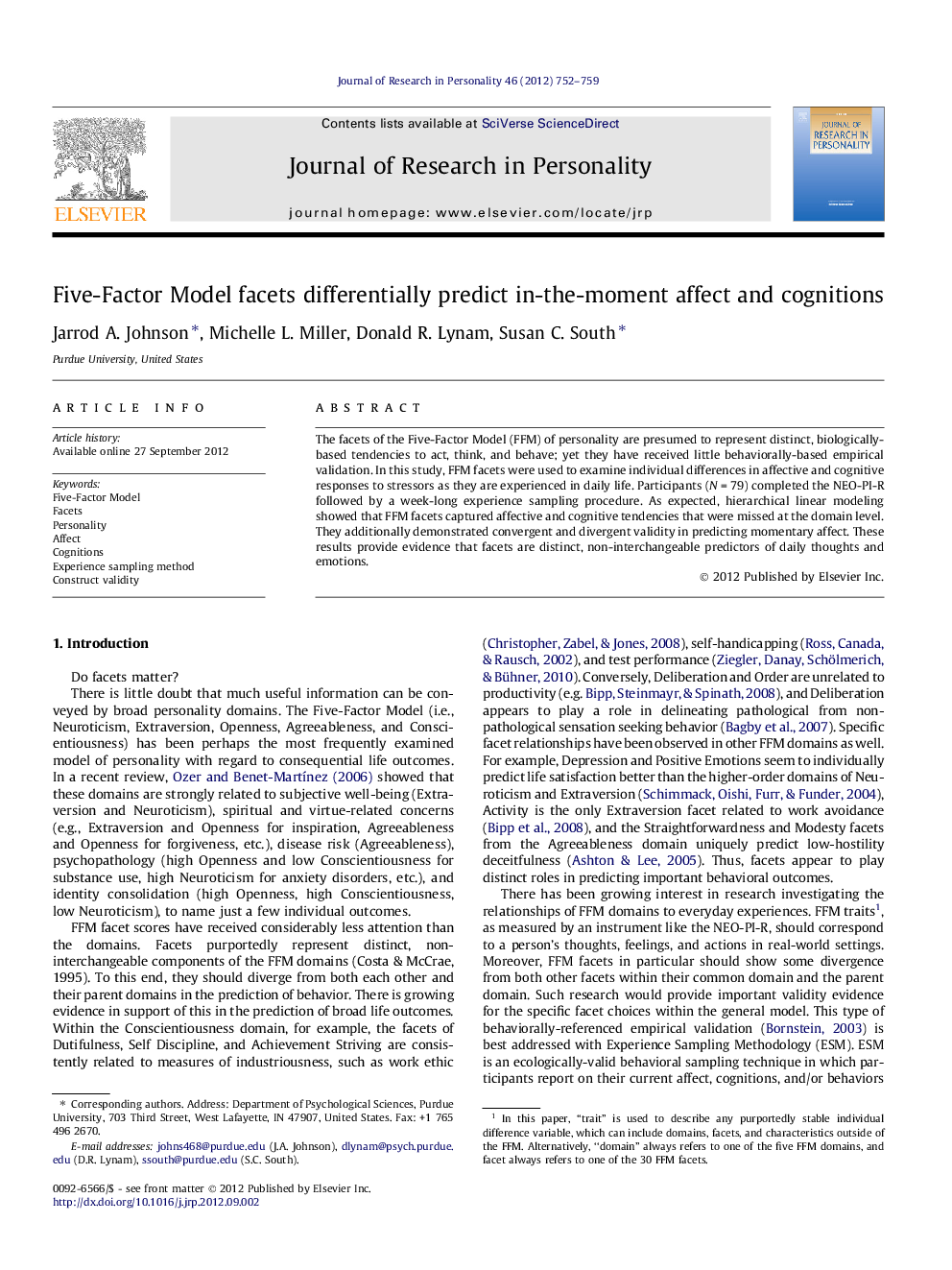| Article ID | Journal | Published Year | Pages | File Type |
|---|---|---|---|---|
| 951487 | Journal of Research in Personality | 2012 | 8 Pages |
The facets of the Five-Factor Model (FFM) of personality are presumed to represent distinct, biologically-based tendencies to act, think, and behave; yet they have received little behaviorally-based empirical validation. In this study, FFM facets were used to examine individual differences in affective and cognitive responses to stressors as they are experienced in daily life. Participants (N = 79) completed the NEO-PI-R followed by a week-long experience sampling procedure. As expected, hierarchical linear modeling showed that FFM facets captured affective and cognitive tendencies that were missed at the domain level. They additionally demonstrated convergent and divergent validity in predicting momentary affect. These results provide evidence that facets are distinct, non-interchangeable predictors of daily thoughts and emotions.
► We used FFM facets to predict momentary affect and cognitive appraisals. ► We employed hierarchical linear modeling to target between-person differences. ► FFM facets diverged from the FFM domains as predictors. ► FFM facets also showed convergent validity in predicting affect.
